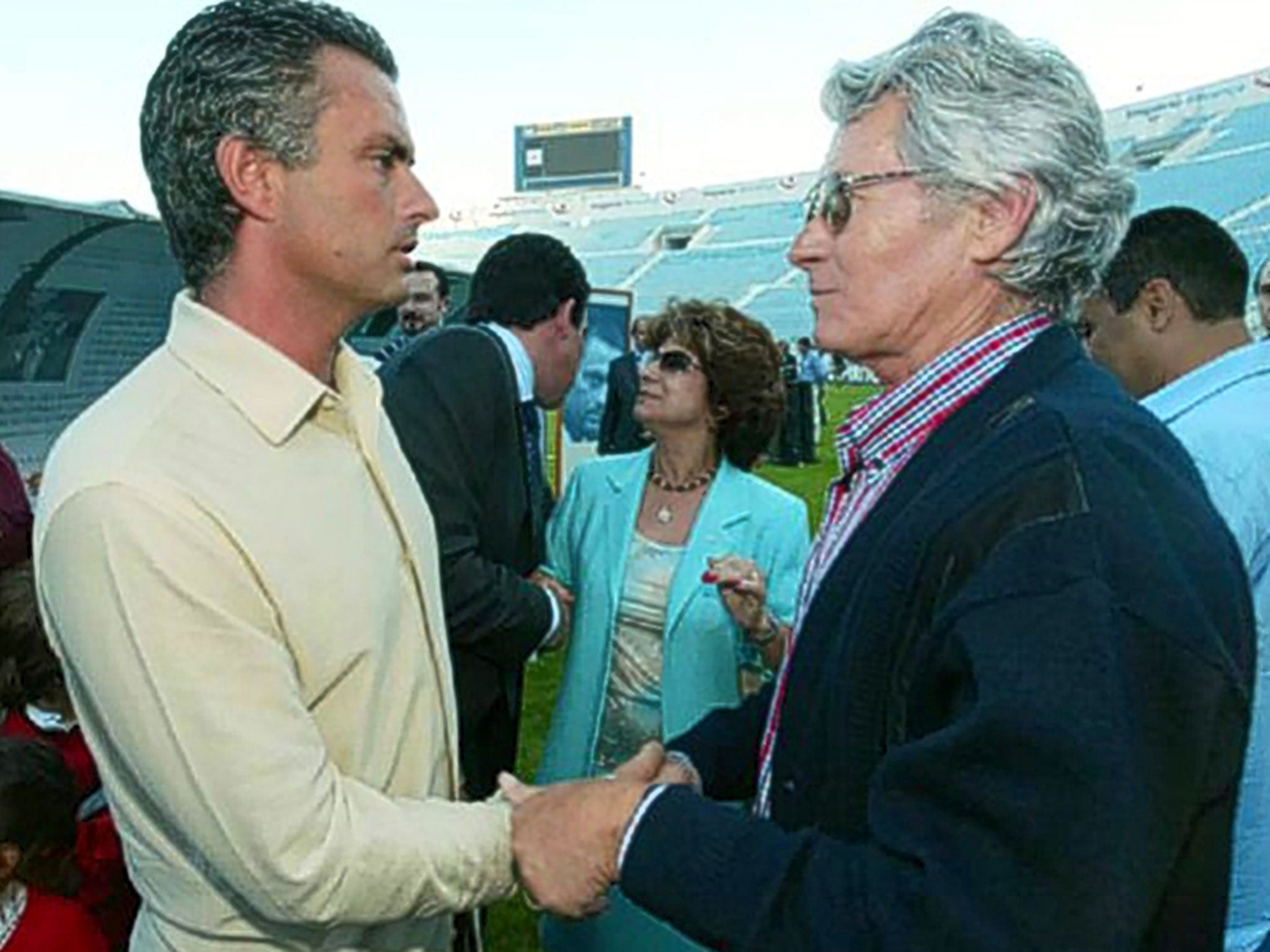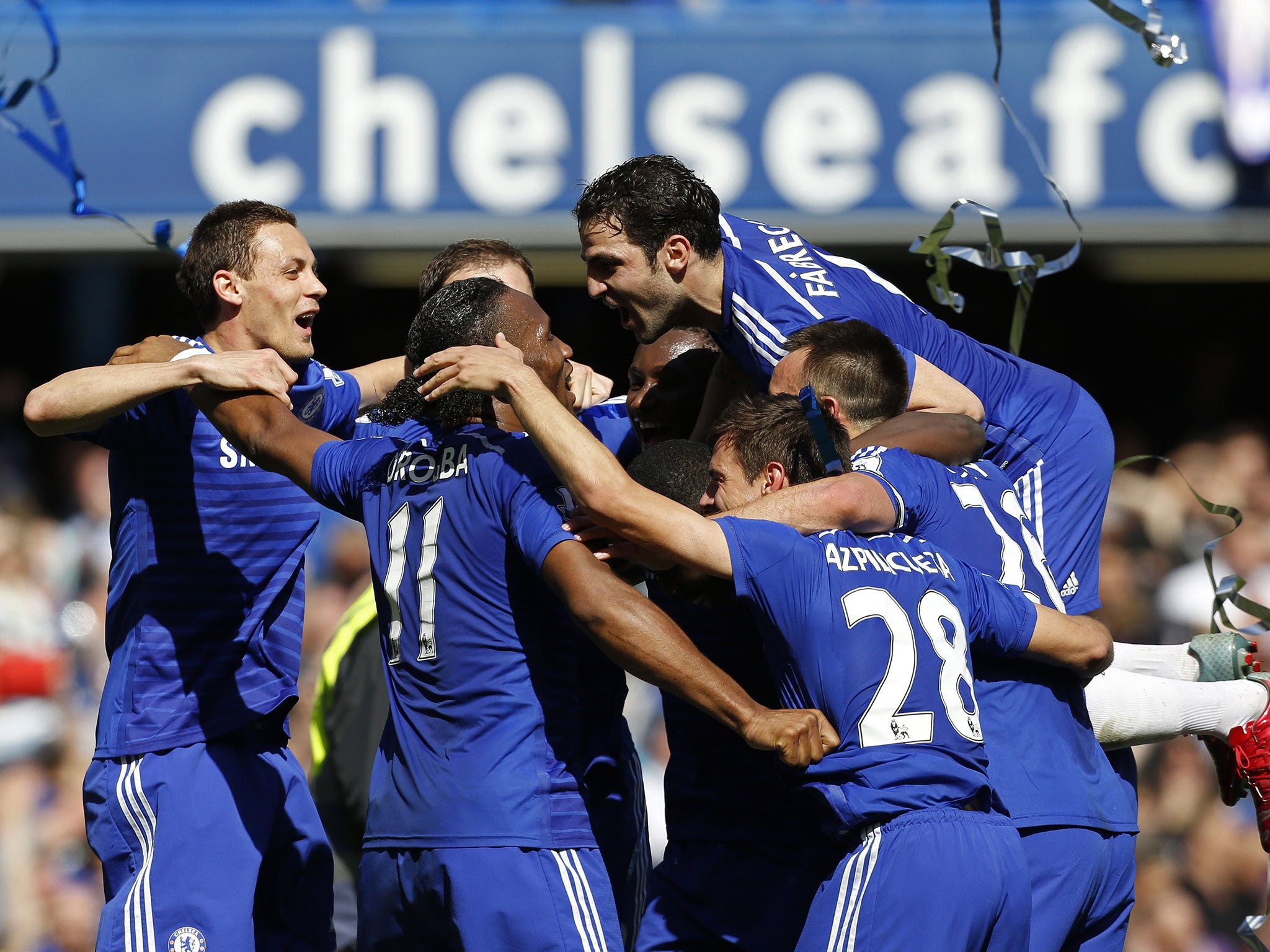Jose Mourinho received an invaluable lesson in the harsh realities of the game from his dad
Mourinho Snr was a good coach. In fact, he was considered for the Portugal job in 1983

There is some intriguing footage unearthed recently by the Portuguese broadcaster RTP from 1981 in which Jose Manuel Mourinho Felix, known to most of the world now as Jose Mourinho’s father, introduces his squad of Rio Ave players for the new season in the Portuguese top division.
Walking towards the camera one by one on a dust-dry cinder pitch, they are introduced by name and position, a ragtag squad newly promoted and dressed in disparate items of 1970s training gear that would probably fetch a decent price these days on the right Camden Market vintage clothing stall. Towards the end comes a grinning, big-haired teenager, slight of frame but sure of himself. “Mourinho junior,” says Mourinho Felix, “avancado [forward]”.
Mourinho Jnr never made it as a footballer. Mourinho Snr never hit the heights as a manager, although he had a solid career in Portugal, returning to clubs like Rio Ave and Vitoria Setubal more than once and managing in the top flight on four different occasions, although never for long. Previously, as a goalkeeper, he had won one cap for Portugal in a friendly in 1972 against the Republic of Ireland. His most significant legacy in the game turned out to be nurturing the interest of his son in the management profession.

Now 76, Mourinho Snr had surgery on a brain haemorrhage last week, and his famous son, still very close to his father, flew to Portugal to be with him immediately after the win over Leicester City on Wednesday. On Sunday, after Chelsea had won the Premier League for the third time under Mourinho with a 1-0 victory over Crystal Palace, Jose Jnr said that his dad was on the mend. “Everything is under control,” Mourinho said. “He’s strong, getting better and better. I’m much more relaxed.”
When I asked a couple of the Portuguese television crews in the Stamford Bridge press room on Sunday what they knew of Mourinho Snr, they shrugged. They said he was most famous for being his son’s father. In a country where interest flags outside domestic football’s big three, never mind the top division, he was only a footnote in Portuguese football. As for his public profile, they said, he was reluctant to speak because his son preferred it that way.
Those who know the Portuguese game well say that Mourinho Snr was a good coach. In fact, he was considered for the Portugal national team job in 1983 but lost out to Fernando Cabrita and never got another chance. When you try to get to grips with the phenomenon that is his son’s career, the manager who has now won league titles in eight of his last 13 years as a coach, then the influence of his father, and his career spent earning a living coaching little-known players at small-time clubs, is nothing short of crucial.
Mourinho Jnr got his first decent job from the Portuguese coach Manuel Fernandes at Vitoria Setubal. With Bobby Robson at Sporting Lisbon, Porto and Barcelona, Mourinho hit the big time. As the assistant to Louis van Gaal at Barcelona, Mourinho was at the forefront of the new methodology evolving in European football in the 1990s. But it was from his father he learnt the more unforgiving realities of football.
To illustrate that, Mourinho occasionally tells the story of how his father was once sacked on Christmas Day. He has been unspecific about the date but it was at Rio Ave, in Mourinho Snr’s second spell at the club in 1984 when his son would have been 21. Mourinho Snr had led Rio Ave to promotion from the second division and the following season finished ninth in the top flight and reached the Portuguese Cup final. But by Christmas 1984 they were on a bad run, lost a game to Covilha and he was out.
The great Andy Roxburgh quote that Mourinho Jnr’s career was “an overnight sensation, 20 years in the making” conveys the crucial experience-gathering of his years as an assistant in his twenties and thirties, which meant that when he was finally given a chance as a manager, aged 37, he was immediately successful. But that experience-gathering started very early, as a teenager learning from his father.
The Mourinho biography by Ciaran Kelly, The Rise of the Translator, quotes Professor Jorge Castelo, one of Mourinho Jnr’s two teachers at the Instituto Superior de Educacao Fisica, the Lisbon university where he spent five years in the 1980s studying sport. The institute was interested in new ways of coaching and counted the young Carlos Queiroz as one of its lecturers. The new affordability of VCRs, Castelo pointed out, meant that for the first time the institute could develop video analysis of games.
But there was no doubt in Castelo’s mind what marked Mourinho out from the rest. “The key was that he had a father who played and coached,” Castelo tells the author. “Mourinho, during his childhood and adolescence, experienced more of the game’s situations, emotions, and dramas. He was closer than anyone to the specifics of the game.”
When you consider aspects of Mourinho Jnr’s career it is not quite the single-minded pursuit of world domination of popular myth. By his early twenties, his hopes of being a professional footballer, shared by some of his contemporaries at the institute in Lisbon, were over. He left in 1987 and for two years – when he was around the age Eden Hazard is now – he was a PE supply teacher around a few primary schools, specialising in working with children with disabilities.
His break came at last at Vitoria Setubal, his hometown club, where his father had played and managed. He began as a youth-team coach and worked his way up to first-team assistant, eventually leaving with manager Manuel Fernandes when the latter was offered a better job elsewhere.
And thus Mourinho Jnr’s astonishing career was launched, one that would coincide with the vast explosion in European football’s wealth, a thoroughly modern sport in need of a thoroughly modern coach. In a rare interview in 2010 with AS, the Spanish sports newspaper, Mourinho’s father spoke about how, in his later years as a coach, the young Jose Jnr had been an invaluable scout, assessing the strengths and weaknesses of opponents.
Asked how the personalities of the two men differed, the father of Jose Mourinho offered the wisdom of a lifetime’s experience in football. As a retired football manager he was able to look on his own career with clarity, and concluded that universal popularity and success were often incompatible. “If my son had been humble as I was,” he said, “people in football would have eaten him already.”
Join our commenting forum
Join thought-provoking conversations, follow other Independent readers and see their replies
Comments